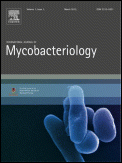
International Journal of Mycobacteriology
Scope & Guideline
Leading the charge in mycobacteriology research and treatment.
Introduction
Aims and Scopes
- Clinical Research on Tuberculosis and Leprosy:
The journal publishes extensive clinical research including epidemiological studies, treatment outcomes, and case reports that enhance the understanding of TB and leprosy in various populations. - Diagnostics and Biomarkers:
A significant focus is placed on the development and evaluation of diagnostic modalities, including molecular techniques and serological tests to improve early detection and management of mycobacterial infections. - Drug Resistance and Treatment Strategies:
The journal addresses the critical issue of drug resistance in mycobacteria, exploring new treatment regimens, pharmacogenomics, and the efficacy of existing and novel antimicrobial agents. - Immunology and Pathogenesis:
Research articles often delve into the immunological aspects of mycobacterial infections, including host-pathogen interactions, immune responses, and the role of genetic factors in susceptibility. - Public Health and Policy:
The journal contributes to public health discourse by publishing studies on the socio-economic impacts of TB and leprosy, vaccination strategies, and health policy implications.
Trending and Emerging
- Impact of COVID-19 on Mycobacterial Diseases:
There is a growing body of research examining the interplay between COVID-19 and mycobacterial diseases, particularly how the pandemic has affected TB diagnosis, treatment, and epidemiology. - Integrated Approaches to Drug-Resistant Tuberculosis:
Research focusing on multidrug-resistant TB (MDR-TB) and extensively drug-resistant TB (XDR-TB) is on the rise, highlighting the urgent need for innovative treatment strategies and public health interventions. - Role of Genetic and Immunological Factors:
Emerging studies are increasingly investigating the genetic polymorphisms and immunological responses that influence susceptibility to TB and leprosy, reflecting a trend towards personalized medicine. - Use of Artificial Intelligence in Diagnostics:
The application of AI and machine learning techniques in the diagnosis and management of mycobacterial infections is becoming a prominent theme, indicating a technological advancement in the field. - Nontuberculous Mycobacterial Infections:
Research on nontuberculous mycobacteria (NTM), including their clinical implications and treatment challenges, is gaining traction as these pathogens are recognized for their significance in immunocompromised patients.
Declining or Waning
- Traditional Culture Techniques for Mycobacterial Identification:
The reliance on conventional culture methods for identifying mycobacterial species has decreased as molecular techniques such as PCR and next-generation sequencing gain prominence due to their speed and accuracy. - Basic Research on Non-Pathogenic Mycobacteria:
Research focusing on non-pathogenic mycobacteria, while still relevant, has seen a reduction in publications as the field increasingly prioritizes pathogenic strains that have significant public health implications. - Leprosy Research in Non-Endemic Regions:
Studies specifically addressing leprosy in non-endemic areas are becoming less frequent, possibly due to a global focus on tuberculosis and the need for immediate solutions to more pressing health crises.
Similar Journals
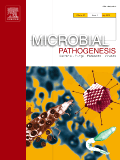
MICROBIAL PATHOGENESIS
Driving Insights into Microbial Disease DynamicsMICROBIAL PATHOGENESIS, published by Academic Press Ltd - Elsevier Science Ltd, is a prominent journal in the fields of Infectious Diseases and Microbiology, with a notable impact factor and classified in the Q2 quartile for both categories as of 2023. Since its inception in 1986, this journal has provided a platform for the dissemination of cutting-edge research that enhances our understanding of microbial infections and their implications in health and disease. The journal is indexed in Scopus, ranking #80 among 344 in Infectious Diseases and #57 among 182 in Microbiology, underscoring its significant contribution to the scientific community. Although it operates under a traditional subscription model, the content is vital for researchers, professionals, and students focused on the dynamics of microbial pathogenesis and the development of innovative therapeutic strategies. The journal's comprehensive scope aims to foster advancements in this critical area of study, bridging the gap between laboratory research and clinical applications.
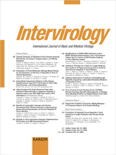
INTERVIROLOGY
Elevating virological research since 1973.INTERVIROLOGY is a leading academic journal dedicated to advancing the field of virology and infectious diseases, published by KARGER. With a commendable history since its inception in 1973, the journal is currently poised to explore innovative virological research through to 2024. INTERVIROLOGY is indexed with the ISSN 0300-5526 and E-ISSN 1423-0100, reflecting its commitment to maintaining high scholarly standards. The journal is categorized within the Q3 quartile for both Infectious Diseases and Virology as of 2023, demonstrating its relevance and contribution to the academic community. With Scopus rankings placing it as #130 in Infectious Diseases and #41 in Virology, INTERVIROLOGY serves as an essential resource for researchers, professionals, and students seeking cutting-edge insights and discoveries in virology. While it currently operates under a subscription model, its rigorous peer-review process ensures a high quality of published content, making it a cornerstone for those dedicated to understanding and combating viral diseases.

INFECTION
Exploring Innovations in Infection MedicineINFECTION is a prestigious journal, published by Springer Heidelberg, that serves as a leading platform for the dissemination of critical research in the fields of Infectious Diseases, Microbiology, and Medicine. With an impressive Q1 ranking in multiple categories such as Infectious Diseases, Medicine (miscellaneous), and Medical Microbiology, the journal is recognized for its high-quality content and impactful contributions to the scientific community, as evidenced by its Scopus rankings placing it in the top 10th percentiles. Since its inception in 1973, and projected to continue until 2024, INFECTION has established itself as a vital resource for researchers, healthcare professionals, and students keen to explore the latest findings and advancements in infectious diseases. The journal provides a rigorous peer-review process, ensuring that only high-quality studies are published, making it an essential read for those seeking to deepen their understanding and stay abreast of the rapidly evolving landscape in infection research.
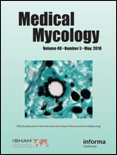
MEDICAL MYCOLOGY
Transforming Understanding of Mycological DiseasesMEDICAL MYCOLOGY, published by Oxford University Press, is a premier journal dedicated to the study of fungal infections and their clinical implications. With an ISSN of 1369-3786 and an E-ISSN of 1460-2709, this journal has established itself as a vital resource in the fields of Infectious Diseases and Medicine, holding a respectable Q2 ranking for both categories and a Q1 ranking in the veterinary sector in 2023. Spanning a rich history from 1962 to 2024, MEDICAL MYCOLOGY serves as a platform for innovative research, case reports, and review articles that contribute to the understanding and management of mycological diseases. The journal's commitment to advancing knowledge is reflected in its Scopus rank of #120 out of 344 in Medicine - Infectious Diseases, positioning it within the 65th percentile. With open access options available, it aims to ensure that critical research is accessible to a global audience, enhancing collaboration and knowledge sharing among researchers, healthcare professionals, and students alike.
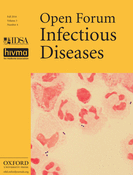
Open Forum Infectious Diseases
Advancing knowledge in infectious diseases.Open Forum Infectious Diseases (ISSN: 2328-8957; E-ISSN: 2328-8957) is a leading open-access journal published by Oxford University Press, dedicated to advancing the field of infectious diseases. Since its inception in 2014, the journal has provided a platform for researchers to disseminate impactful findings in a rapidly evolving domain, achieving a remarkable Q1 ranking in both the Infectious Diseases and Oncology categories as of 2023. The journal encourages rigorous and innovative research, contributing significantly to global health discussions and informing best practices in clinical settings. As an open-access journal, it ensures that its content is accessible to a wide audience, fostering collaboration and knowledge sharing among researchers, professionals, and students alike. Positioned in the heart of the United States, Open Forum Infectious Diseases serves as a critical resource for the academic community, and its continued commitment to quality and relevance secures its status as an essential publication in the field.

Medical Mycology Journal
Exploring Innovative Solutions for Fungal PathogensMedical Mycology Journal is a leading publication in the field of medical mycology, dedicated to advancing the understanding and treatment of fungal infections. Published by the Japanese Society of Medical Mycology, this journal serves as an essential resource for researchers, clinicians, and students alike. With an ISSN of 2185-6486 and an E-ISSN of 2186-165X, it aims to provide high-quality peer-reviewed articles focusing on clinical and epidemiological studies, diagnosis, and novel therapeutic approaches related to fungal pathogens. Operating under a Q3 ranking in Infectious Diseases and having consistently published significant findings since its establishment in 2011, the journal is pivotal for those working at the intersection of mycology and infectious disease management. Although currently non-open access, the journal's insights are vital for expanding knowledge in this critical area of healthcare, addressing pressing global health challenges linked to fungal infections.
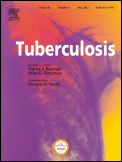
Tuberculosis
Connecting research with practice in tuberculosis care.Tuberculosis is an esteemed peer-reviewed journal specializing in the fields of Infectious Diseases, Immunology, and Microbiology, published by Churchill Livingstone since 1974. With a scope aimed at advancing the understanding and management of tuberculosis and related infectious diseases, the journal provides a platform for innovative research findings, clinical practices, and policy discussions. It is ranked in the Q2 category for both Infectious Diseases and Microbiology (medical), reflecting its significance in the academic community and the impact of its published work. The journal's commitment to openness is evident in its access options, fostering wider dissemination of knowledge. With an impact factor that underscores its relevance, Tuberculosis serves as a crucial resource for researchers, healthcare professionals, and students dedicated to combatting these pressing health challenges. The journal operates from its production headquarters in Edinburgh, Scotland, ensuring a strong connection to the international research community.

GERMS
Fostering a global dialogue on health equity and disease prevention.GERMS is a multidisciplinary journal published by the EUROPEAN ACAD HIV-AIDS & INFECTIOUS DISEASES, dedicated to advancing knowledge in the fields of epidemiology, immunology, infectious diseases, and microbiology. Since its inception in 2011, the journal has provided a crucial platform for researchers and practitioners to share innovative studies, clinical findings, and public health insights, with an eye on improving health outcomes globally. With an ISSN of 2248-2997 and a consistent publication trajectory leading up to 2024, GERMS is recognized in the third quartile across several categories, reflecting its growing impact and relevance in the scientific community. Authors and readers benefit from a range of access options, fostering the dissemination of vital research findings. As a journal situated in Romania, it also addresses regional health challenges while contributing to the broader discourse on infectious diseases and public health. GERMS is not just a repository of knowledge, but a vital resource for those engaged in combating infectious diseases and promoting health equity.
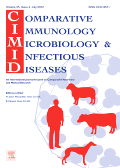
COMPARATIVE IMMUNOLOGY MICROBIOLOGY AND INFECTIOUS DISEASES
Pioneering Discoveries in Infectious Disease ResearchComparative Immunology Microbiology and Infectious Diseases, published by Elsevier Science Ltd, is a prominent journal dedicated to advancing the fields of immunology, microbiology, infectious diseases, and veterinary sciences. Established in 1978, this journal has become a vital resource for researchers and professionals alike, with a commendable impact factor that reflects its significance in academia. The journal, available in both print and electronic formats (ISSN: 0147-9571, E-ISSN: 1878-1667), stands out for its commitment to disseminating innovative research findings, particularly through its categorization in Q2 and Q3 quartiles across various related disciplines as of 2023. The journal aims to provide insightful comparative analyses that enhance our understanding of host-pathogen interactions, immune responses, and disease manifestations. With a global readership base, it serves as a platform for collaborative discourse among scientists and professionals, ultimately contributing to the improvement of health outcomes worldwide.

MEDICAL MICROBIOLOGY AND IMMUNOLOGY
Driving innovation in the study of microbes and their immune interactions.Medical Microbiology and Immunology is a renowned journal published by Springer, serving as a pivotal resource in the fields of microbiology and immunology. Established in 1971 and continuing its legacy through 2024, this journal features cutting-edge research and reviews that address critical advancements and challenges within these dynamic fields. With an impressive impact factor and a robust ranking, including Q1 categories in both Microbiology (medical) and Immunology, it stands at the forefront of scholarly communication, ranking 21st out of 140 in the realm of Medical Microbiology. Researchers and professionals are encouraged to explore a variety of studies that delve into the interactions between microorganisms and the immune system, making it an essential resource for anyone fascinated by these interconnected realms of health sciences. Although not open access, the journal is widely accessible through institutional libraries, ensuring that significant findings reach a global audience. The University of New York Plaza serves as its operational hub in the USA, reinforcing its international influence and dedication to advancing knowledge in microbiology and immunology.